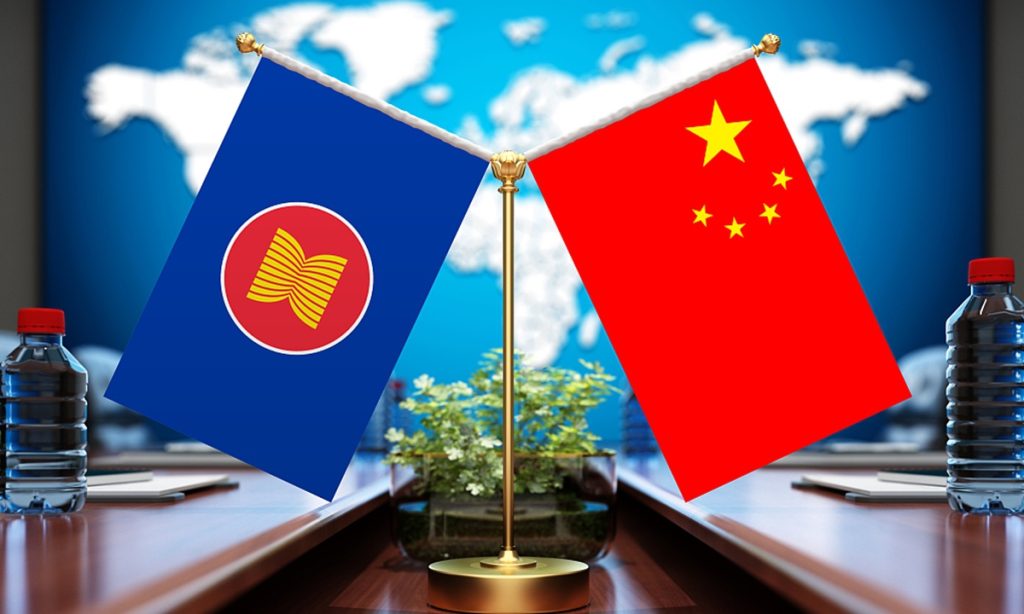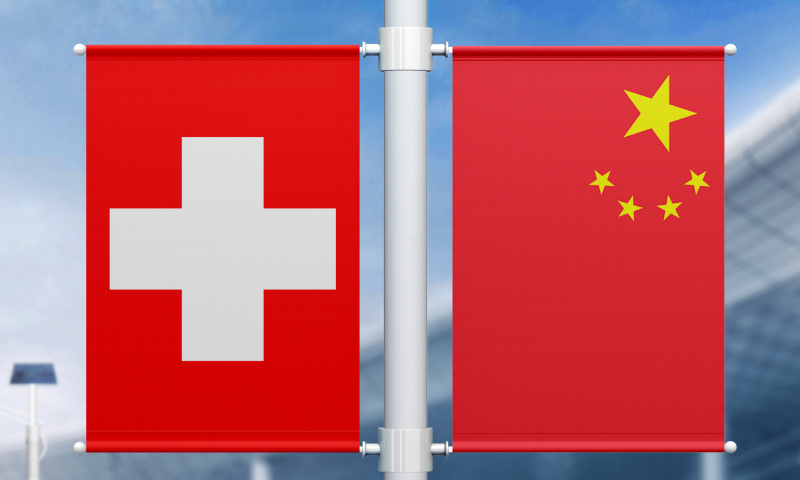China has ‘rich agenda’ for free trade negotiations in 2024 amid high-level opening-up

China is striving to complete negotiations on version 3.0 of the China-ASEAN Free Trade Area (FTA) in 2024 amid a "rich agenda" for FTA negotiations in a bid to further advance high-standard opening-up, Chinese vice minister of commerce Wang Shouwen told a press conference on Friday.
China's active engagement in FTA talks reflects China's commitment to deepening economic cooperation and integration and will have a positive impact on both China and the world economy by promoting trade, investment, and regional economic integration, experts said.
The talks on version 3.0 of the China-ASEAN FTA are scheduled to take place in Hangzhou, East China's Zhejiang Province, next week, Wang said.
Additionally, China will also complete FTA negotiations with Honduras, complete FTA upgrade negotiations with Peru and continue to promote the joining of the Comprehensive and Progressive Agreement for Trans-Pacific Partnership (CPTPP) and the Digital Economy Partnership Agreement (DEPA) this year, Wang said.
In November 2022, China and ASEAN jointly announced the official launch of the negotiations. The two sides agreed that the negotiations will cover fields including trade in goods, investment, and digital and green economy, so as to build a more inclusive, modern, comprehensive, and mutually beneficial China-ASEAN FTA.
"The upgrade of the China-ASEAN FTA caters to the mutual development needs of both China and ASEAN, and will contribute to further enhancing the bilateral trade volume," Zhou Shixin, a research fellow at Shanghai Institutes for International Studies, told the Global Times on Friday.
Bilateral trade between China and ASEAN reached 6.41 trillion yuan ($900 billion) in 2023, with ASEAN maintaining its position as China's largest trading partner for the fourth consecutive year. China has continued to be ASEAN's largest trading partner for multiple years.
Additionally, the upgrade of the China-ASEAN FTA is expected to drive the upgrades of the Regional Comprehensive Economic Partnership (RCEP) and lay a good foundation for China's joining of CPTPP and DEPA, Zhou said.
Wang believes China now has more mature conditionsfor joining the CPTPP, as it has been consistently making efforts to promote deep exchanges with CPTPP members and enhance pilot projects and experiments within its domestic free trade zones, aligning with high-level international standards.
"We have full confidence and the capability of meeting the high standards set by the CPTPP," Wang said.
China will also continue to engage in free trade negotiations or upgrade negotiations with the Gulf Cooperation Council, New Zealand, South Korea, and Switzerland to further implement the high-standard free trade zone network, Wang added.
High-standard economic and trade rules, as well as new content such as the lifting of the zero tariff ratio for goods traded, the promotion of telecommunications and healthcare services opening-up, and the expansion of market access for digital products will be included in the new free trade negotiations, Wang said.
"The proactive moves demonstrate China's commitment to further opening its doors and injecting new vitality into the regional economy amid the slowdown in global economic recovery," Zhou said.
2024 is indeed a pivotal year for the enhancement of free trade agreements. China's increasing domestic competitiveness, coupled with the opportunities of the digital and green era, as well as the "decoupling" and supply chain disruptions imposed by the US and the West, call for renewed efforts to upgrade free trade agreements, Wang Yiwei, director of the Institute of International Affairs at the Renmin University of China, told the Global Times.
"It will not only drive China's economic growth but also contribute to open and inclusive economic globalization," Wang Yiwei added.
2023 saw the RCEP come into full effect and was a fruitful year for China to expand free trade agreements with other partners.
"In 2023, we signed four new free trade agreements. As of today, we have signed 22 free trade agreements with 29 countries and regions, and trade with those countries and regions accounted for approximately one-third of China's total foreign trade volume," Wang said.
Chinese enterprises enjoyed import duty reductions of 2.36 billion yuan under the RCEP last year. At the same time, import enterprises from RCEP partner countries benefited from preferential treatment worth 4.05 billion yuan when importing products from China, which is a clear and mutually beneficial outcome for both sides, Wang said.
